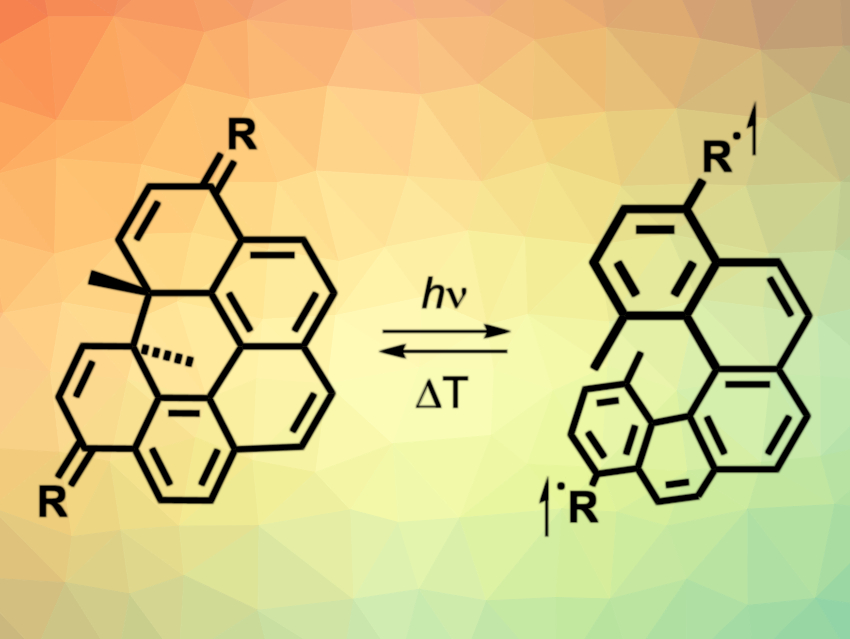Digital data storage relies on the change of a material’s electrical, magnetic, or optical properties between two states, indicating ones and zeroes. Smaller units of information storage are an interesting research target, because they could lead to higher-density storage. Molecular organic switches are interesting in this context. However, the switching of spin states in all-organic molecules is challenging.
Oliver Dumele, Humboldt University of Berlin, Germany, and colleagues have synthesized two all-organic molecular spin-state switches (pictured) that can be switched from a diamagnetic to a paramagnetic form at very low temperatures. The team functionalized a 1,14-dimethyl-[5]helicene with radical-stabilizing groups at the 4- and 11-positions, giving two spin-state switches: a 4,11-dioxo derivative and a 4,11-bis(dicyanomethylidenyl) derivative, both in the “closed”, diamagnetic form (pictured on the left).
When the switches were irradiated using an LED light at a temperature of 77 K, the molecules were transformed to their open, biradical, paramagnetic form (pictured on the right). As they warmed up, the reaction was reversed and the molecules returned to their closed form. This was observed using UV/Vis spectroscopy and electron paramagnetic resonance (EPR) spectroscopy. According to the researchers, this type of spin-state switching could be useful to obtain single-molecule magnets for applications in, e.g., spintronics or data storage.
- An All-Organic Photochemical Magnetic Switch with Bistable Spin States,
Konstantin Günther, Niklas Grabicki, Beatrice Battistella, Lutz Grubert, Oliver Dumele,
J. Am. Chem. Soc. 2022.
https://doi.org/10.1021/jacs.2c02195



